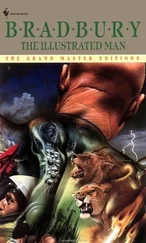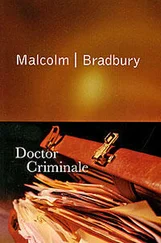Malcolm Bradbury - The History Man
Здесь есть возможность читать онлайн «Malcolm Bradbury - The History Man» весь текст электронной книги совершенно бесплатно (целиком полную версию без сокращений). В некоторых случаях можно слушать аудио, скачать через торрент в формате fb2 и присутствует краткое содержание. Жанр: Современная проза, на английском языке. Описание произведения, (предисловие) а так же отзывы посетителей доступны на портале библиотеки ЛибКат.
- Название:The History Man
- Автор:
- Жанр:
- Год:неизвестен
- ISBN:нет данных
- Рейтинг книги:3 / 5. Голосов: 1
-
Избранное:Добавить в избранное
- Отзывы:
-
Ваша оценка:
- 60
- 1
- 2
- 3
- 4
- 5
The History Man: краткое содержание, описание и аннотация
Предлагаем к чтению аннотацию, описание, краткое содержание или предисловие (зависит от того, что написал сам автор книги «The History Man»). Если вы не нашли необходимую информацию о книге — напишите в комментариях, мы постараемся отыскать её.
The History Man — читать онлайн бесплатно полную книгу (весь текст) целиком
Ниже представлен текст книги, разбитый по страницам. Система сохранения места последней прочитанной страницы, позволяет с удобством читать онлайн бесплатно книгу «The History Man», без необходимости каждый раз заново искать на чём Вы остановились. Поставьте закладку, и сможете в любой момент перейти на страницу, на которой закончили чтение.
Интервал:
Закладка:
The lift comes quickly, and they get inside. 'I do hope you're not angry with me,' says Henry, as they descend. 'Why should I be?' asks Howard. 'I mean, over the Mangel question,' says Henry, 'I had to vote for him, of course, on principle. It was quite clear to me, though I respect the other point of view. I suppose you voted against.'
'I abstained, actually,' says Howard. 'But I know what you must have thought,' said Henry. 'If only Henry had done the sensible thing, and stayed at home, and then the vote would have gone the other way.'
'Nonsense,' says Howard, 'if you'd stayed at home, we wouldn't have had an issue. Now there'll be trouble, and it will radicalize everyone, and we shall have a good term.'
'Well, I don't think we agree on that,' says Henry. The lift doors open, and they step out into the empty foyer. The Kaakinen waterfall has been turned off for the night; many of the lights are out; the floors are being cleaned by a cleaner with a cleaner. 'No,' says Henry, 'I'm like Flora. I cry for peace. My political days are good and over. I'm not sure I was ever really very far in. In any case, politics were fair, in the fifties.'
'That was why nothing got done,' says Howard, 'and there is no peace.' They go out, through the glass doors, into the darkening campus. 'Well, that's my point of view,' says Henry, 'though of course I do respect the other one.'
'Yes,' says Howard, as they stop and stand in the rain, 'well, where shall we go for our drink?'
'Ah,' says Henry, brightening, 'that's what I call a really serious issue. Where do you think?'
X
There is a pub on campus, the Town and Gown, a modernistic place done out in oiled pinewood; here students meet students, and faculty faculty, and faculty students, and students faculty, and they sit at very littered tables, in the crush, with the noise of reggae music from the jukebox loud in their ears, and discuss very open and discussable affairs, such as term-papers, union politics, theses, colleagues, abortions, demonstrations, and sexual and matrimonial difficulties. But for matters of a more confidential or a more furtive kind, for caucuses, small liaisons, large conspiracies, or the resolution of serious methodological questions, it is customary to go off campus; and there are, nearby, two familiar and well-known pubs with a straightforward atmosphere and a number of convenient corners. Howard names one of these pubs; but Henry, it seems, has other ideas. 'Look,' he says, 'why don't we go to my local?'
'You have a local?' asks Howard. 'Well, I always pop into the Duke of Wellington for a drink on my way home,' says Henry, 'it's a good place for a serious talk.' The good place for a serious talk is down in the city; it smells of warm scampi and has a natty clientele dressed by Austin Reed and Howard has never entered it. 'Very well, Henry,' says Howard, 'let's go to my car.' The rain blows over them as they enter the exposure of the car park, flapping Henry's bandages. They get in the minivan and drive off, with Henry's arm stiffly out ahead of him. As they go down the long approach road, Howard can look back, in the mirror, and see the campus behind him, a massive urban construct, lit with spots and flashes, throwing out beams and rays in the half-light, the image of an intellectual factory of high production and a twenty-four hour schedule. To each side of them, behind the wet trees, are the round porthole lights of Spengler and Toynbee, each window with its own diaphanous, indeed transparent, blind, each one in a different and pure colour, each presenting to the eye a penetrable circular blob, one found of great fascination by many citizens of Watermouth, who can walk a dog by night and see, focused in these elegant, composed circles, as in the lens of a camera, the shimmering image of a student, undressing. At the end of the drive, Howard turns the van left, on the main road, and drives them towards the town centre.
It was at 17.30 that Benita Pream's alarm clock pinged, to announce the end of the department meeting. It is just striking six, on the brass-faced grandfather clock that stands in the hall, as they enter the Duke of Wellington. 'I think you'll find this a nice ambience, Howard,' says Henry, as they go into the Gaslight Room, brightly lit by electricity and done out in camp Victorian detail. 'Well, well, well,' says the barmaid, who has somehow been persuaded into wearing a long Victorian dress with a lace neck, 'you've been in the wars, haven't you, Mr Beamish?'
'Two pints of bitter,' says Henry, standing at the counter, his raincoat fastened Napoleonically under his chin, his white bandaged arm sticking out stiffly below. 'Have I?U 'Looks as though you've been in a real punch-up,' says the barmaid, 'tankards or glasses?'
'Tankards, I think,' says Henry. 'No, I'm fine. I just had a bit of an accident.' Behind Chlöe is a large mirror; in the mirror are etched, for the solace of contemporary man, the firm, delicate lines of Paxton's building for the Crystal Palace Exhibition of 1851, upon which is imposed the reflection of the plushy room. 'It looks quite a lot of an accident to me,' says Chlöe, pulling the handle, and beaming at Howard; 'lucky you've got a friend here to look after you.'
'Oh, this is Mr Kirk,' says Henry, 'yes, he's looking after me.'
'There we are, then,' says Chlöe, 'two pints, anything else?'
'I think we might have a packet of cheese and onion crisps,' says Henry. 'I wonder, Howard, would you be good enough to reach into my left-hand trouser pocket and get out my money? I've put it on the wrong side of me, for some reason.'
'You be careful,' says Chlöe, 'you'll get your friend arrested.'
'Never mind, I'll get it,' says Howard. 'I protest,' says Henry, 'I invited you here as my guest.'
'You get the next one,' says Howard. 'Shall we sit down?' asks Henry, attempting to lift up the two pint tankards from the bar in his single hand, and spilling a considerable quantity of the beer down his trousers. 'Let me,' says Howard. 'Do you want the evening paper tonight, Mr Beamish?' asks Chlöe, as they move away from the bar. 'I always read the paper here,' says Henry to Howard. 'Not tonight, I think, Chlöe. I've some important business to discuss.'
'I see they went and hijacked another,' says Chlöe, 'I don't know what it's all coming to.'
'Ah, the world, the world,' says Henry vaguely, putting the packet of crisps between his teeth, 'if only people could learn to live together.'
'That's right, Mr Beamish,' says Chlöe, 'not what it was, is it? Except for the sex. That's improved, definitely.'
'And the surgery,' says Henry, through clenched teeth, starting to move unsteadily across the room with his glass, 'there are real advances in surgery.'
'Well,' says Chlöe with a laugh, 'I'm afraid you look as though you need them, Mr Beamish, tonight.'
'Grand girl, Chlöe,' says Henry, as they sit down in a lush plush booth across the room, overhung with an aspidistra, 'they know me here, you see.'
'Yes,' says Howard. 'Nice place,' says Henry, 'the landlord's an old military man. I suppose it's not your sort of thing really.'
'Not exactly,' says Howard, 'what did you want to talk to me about?'
'Oh,' says Henry, 'yes. Well, Howard, I wanted to have a little word with you about last night.'
'The party,' says Howard. 'Yes,' says Henry, 'the party. I wonder, Howard, would you mind, I can't open this packet of crisps.'
'There we are,' says Howard. 'Rather a chapter of accidents for me, I'm afraid,' says Henry, 'I got there late, then I got bitten, and then I broke your window. I'm extremely sorry.'
'You needn't worry,' says Howard, 'things break at parties.'
'I'm afraid Myra was rather drunk too,' says Henry, 'not our evening, all round.'
'People drink at parties, too,' says Howard, 'but was there something wrong last night?'
Читать дальшеИнтервал:
Закладка:
Похожие книги на «The History Man»
Представляем Вашему вниманию похожие книги на «The History Man» списком для выбора. Мы отобрали схожую по названию и смыслу литературу в надежде предоставить читателям больше вариантов отыскать новые, интересные, ещё непрочитанные произведения.
Обсуждение, отзывы о книге «The History Man» и просто собственные мнения читателей. Оставьте ваши комментарии, напишите, что Вы думаете о произведении, его смысле или главных героях. Укажите что конкретно понравилось, а что нет, и почему Вы так считаете.











